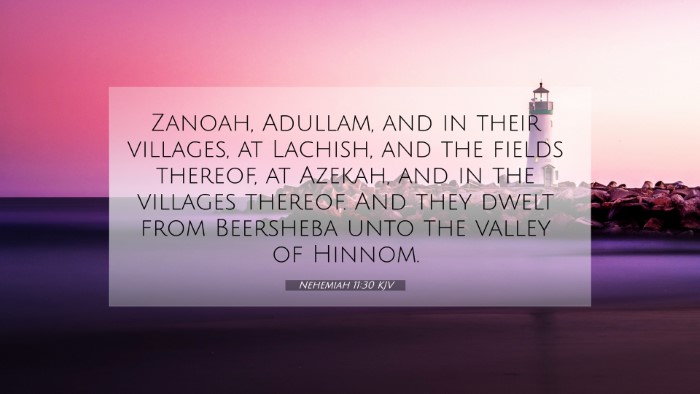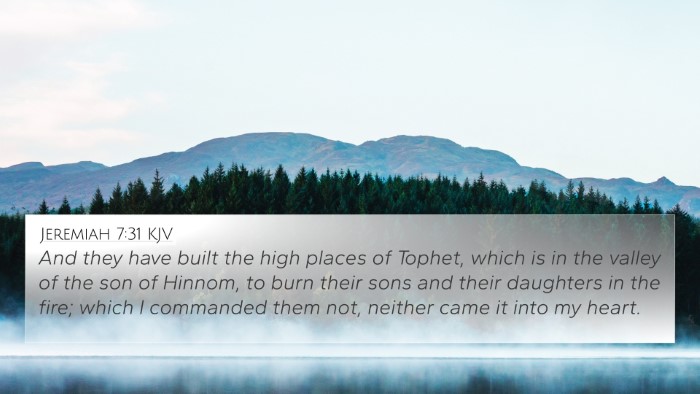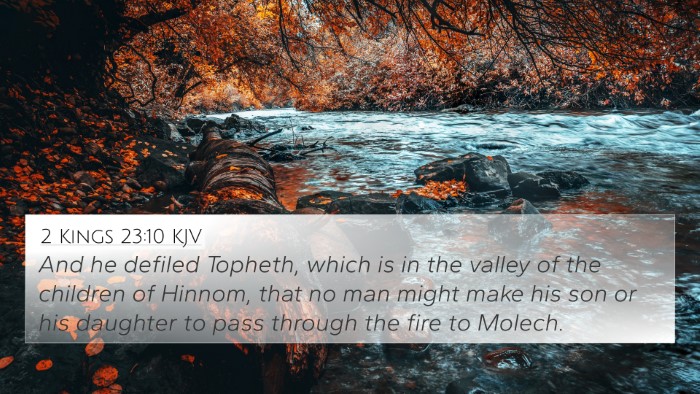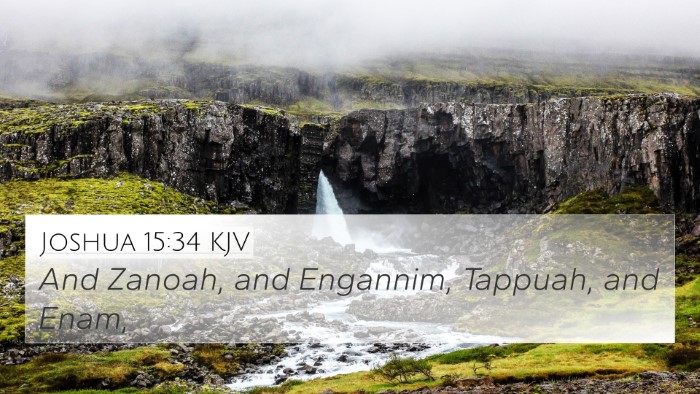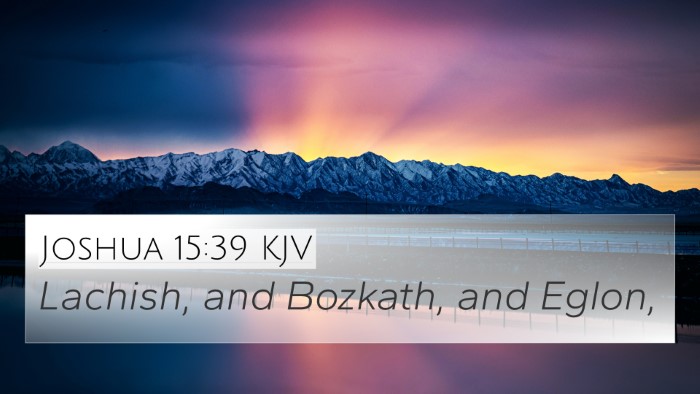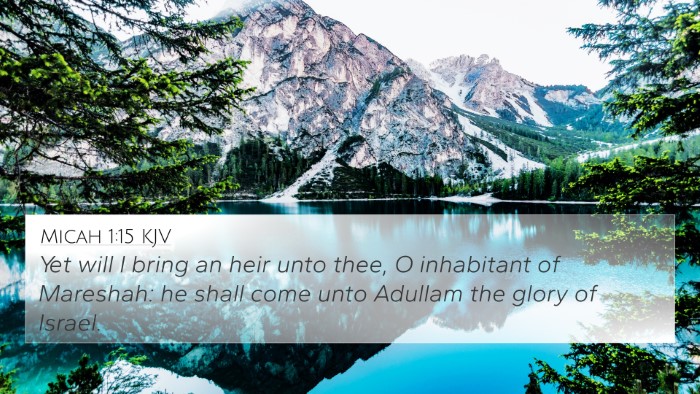Understanding Nehemiah 11:30
Nehemiah 11:30 states:
"Zanoah, Adullam, and their villages, in the lowlands of Negev." (Nehemiah 11:30)
Summary of Nehemiah 11:30
This verse is part of a larger passage that lists the cities and communities that were repopulated during the return from the Babylonian exile. It emphasizes the restoration of Judah and the allocation of land and resources among the returning exiles. The mention of Zanoah and Adullam reflects the geographical and historical significance of these areas.
Commentary Insights
Based on insights from public domain commentaries:
-
Matthew Henry:
Matthew Henry emphasizes the importance of Zanoah and Adullam in the context of the return of exiles and their efforts to reestablish their homes and communities. He notes that these towns were significant not only for their physical location but also for their role in Israel's history and identity, particularly during the times of David.
-
Albert Barnes:
Barnes provides a historical context, explaining that these regions were once home to significant events in biblical history, particularly during David's reign. He implies that listing these cities serves to mark the revival of a once-great nation that faced desolation and destruction.
-
Adam Clarke:
Clarke elaborates on the geographical positioning of Zanoah and Adullam, illustrating how the inhabitants were crucial in the agricultural life of the people. He highlights that the revitalization of these towns indicates God’s fulfillment of promises to restore Israel.
Cross-References for Nehemiah 11:30
Understanding this verse can be enriched through various cross-references:
- 1 Samuel 22:1-2: David flees to Adullam, demonstrating its strategic importance.
- Matthew 1:12: Mention of Zorobabel in the genealogy, highlighting the continuity of God’s covenant people.
- Joshua 15:35: Discusses the cities of the Philistines, linking back to the historical conflict in these areas.
- Ezra 2:21: Provides a list of returning exiles, emphasizing the continuity of Jewish heritage.
- Micah 1:15: Forecasts the destruction of a town in the region, indicating the fulfillment of prophecy regarding Israel's fate.
- Luke 2:15-20: Resonates with the humble beginnings and small towns that played significant roles in biblical narratives.
- Hebrews 11:32-34: Reflects on the faith of those from the lineage of these towns, vindicating their importance in the larger biblical story.
Thematic Connections
This verse ties into several broader biblical themes:
- Restoration: The return from exile is a vital part of God's plan for restoration and redemption.
- Identity: The enumeration of towns reflects the regaining of national and spiritual identity.
- Covenant Faithfulness: The rebuilding of Jerusalem’s walls is a testament to God’s enduring promise to His people.
Inter-Biblical Dialogue
The connections between these biblical texts create a rich inter-Biblical dialogue, revealing patterns of God's engagement with Israel:
- Loyalty of God's people shows through geographical contexts in various biblical timelines.
- Similarities between Nehemiah's rebuilding efforts and spiritual renewal seen in the New Testament.
- Patterns of exile and return throughout scriptures showcase God's sovereign guidance over His people.
Tools for Bible Cross-Referencing
To enhance your study and understanding of Bible verses like Nehemiah 11:30, consider utilizing:
- Bible Concordance: A resource to locate words and their occurrences across scripture.
- Bible Cross-Reference Guide: A tool to explore related passages and their significance.
- Cross-Referencing Bible Study Methods: Helps in connecting themes and verses across different books.
- Comprehensive Bible Cross-Reference Materials: Encompass various resources for in-depth understanding.
In conclusion, Nehemiah 11:30 serves as a vibrant link in the story of God's enduring promise to His people, showcasing how the restoration of cities is intertwined with the spiritual revival of a nation. By engaging with surrounding verses and themes, we can better appreciate the depth and richness of scripture.


